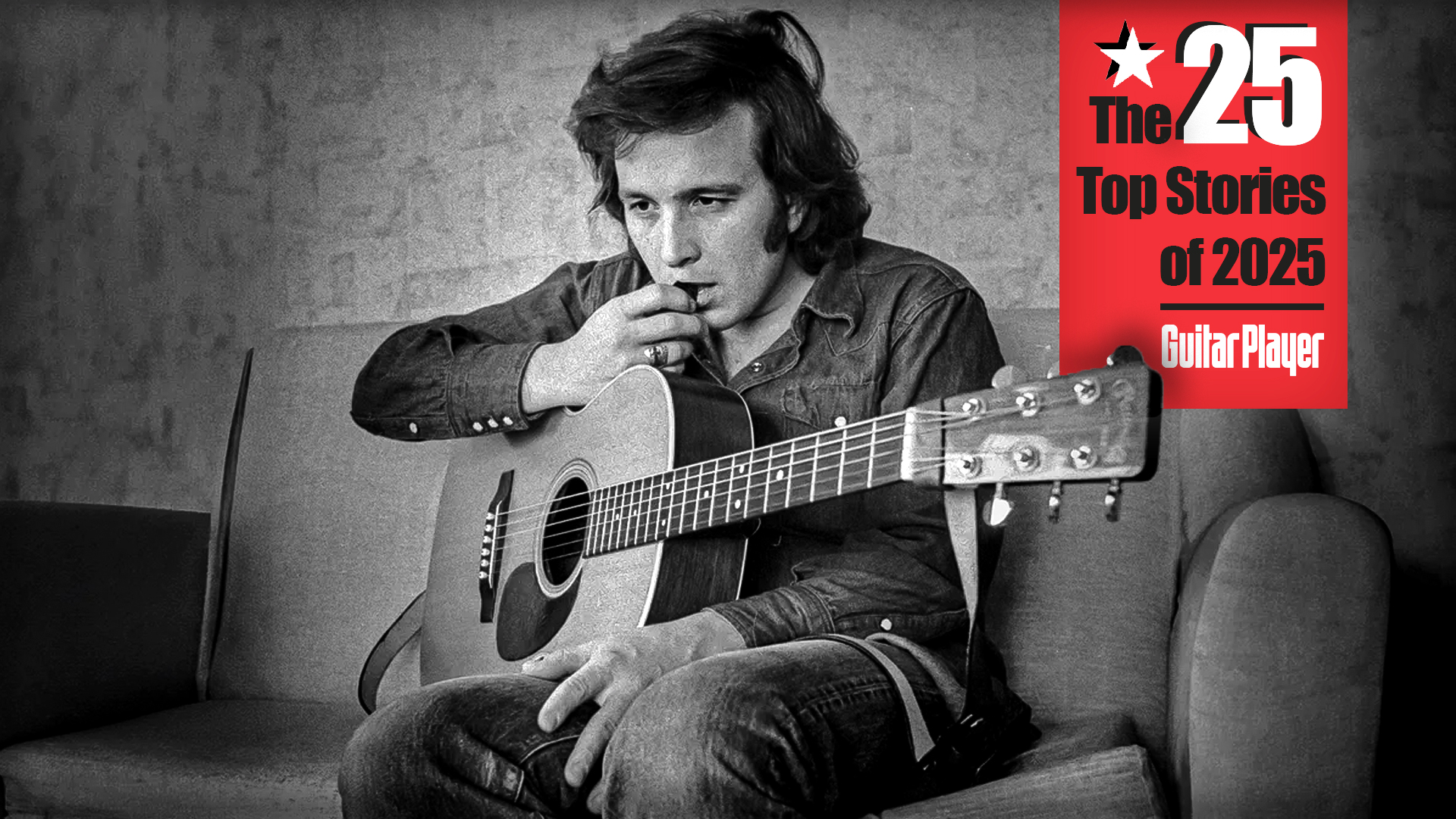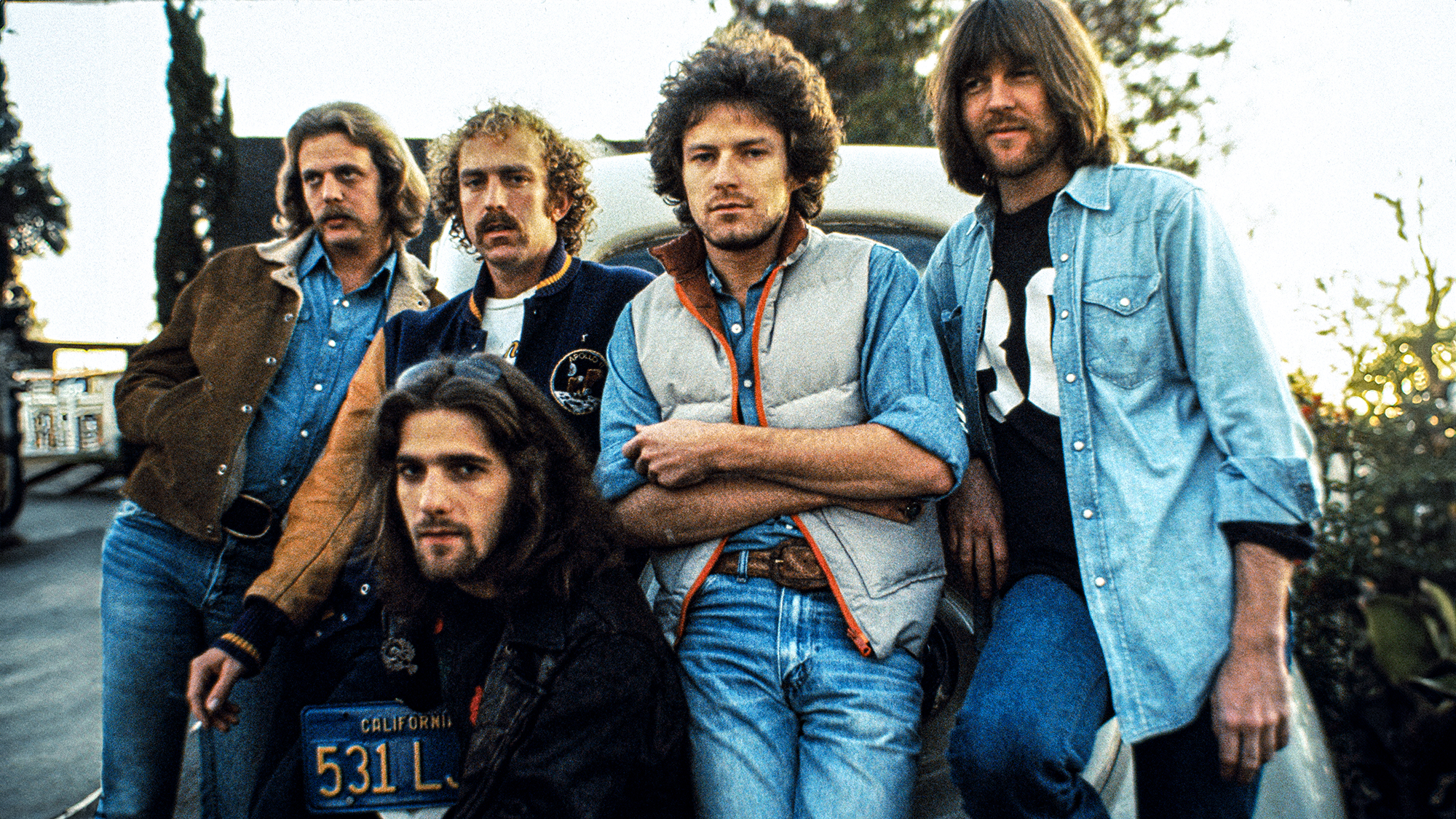“I cried for two years. I blamed myself.” Don McLean on the “unspeakable” death that haunted the writing of his iconic acoustic hit “American Pie”
Read one of Guitar Player's top stories of 2025

All the latest guitar news, interviews, lessons, reviews, deals and more, direct to your inbox!
You are now subscribed
Your newsletter sign-up was successful
Guitar Player is closing out 2025 by republishing 25 of your favorite stories from the past year. We thank you for spending the past year with us and look forward to bringing you more of the stories you want in 2026.
Don McLean scored more than a hit when he composed “American Pie,” the tune he released as a single in 1971. He also created an iconic cut that has continued to resonate with the public some 55 years later. Generations since its original release, “American Pie” is an anthem known and loved by members of every generation.
The tune offers a kaleidoscopic ride through the social unrest and changes brought about in 1960s America. McLean was famously reluctant to discuss the song’s enigmatic lyrics for years, preferring to let its mystery endure.
But even while he kept mum about the meaning behind its words, “American Pie” remained the centerpiece of his live performances, a showstopper that got everyone in the venue singing along.
Despite the song’s popularity — second only to that of his 1972 hit "Vincent" — McLean never sang it with another artist until his 1997 performance with country artist Garth Brooks. At the time, Brooks was at his peak, with Diamond-certified albums like No Fences (1990) and Ropin' the Wind (1991), playing major stadium tours, and holding a record-setting Central Park concert in 1997.
Which is why singer Jessie Murph’s show on September 27 was such a big deal.
The rising star used her sold-out show at Los Angeles’s Shrine Auditorium as an opportunity to bring out McLean for a rare performance of “American Pie,” making her only the second artist in 55 years to perform the tune with him.
All the latest guitar news, interviews, lessons, reviews, deals and more, direct to your inbox!
The 20-year-old singer/songwriter wrote in her Instagram Stories, “I have so much gratitude in my heart today. Last night was so magical and incredible and sparkling, I feel like the luckiest girl on earth.”
A post shared by HITS (@hitsdd)
A photo posted by on
Murph's embrace of the song is evidence of its continuing importance to American identity. But while the song's lyrics are a whirlwind ride through the country’s turbulent ’60s, McLean — who recorded “American Pie” with a Martin D-28 acoustic guitar — says the tune initially grew from a deep sense that something precious had been lost in that decade.
“Basically in ‘American Pie,’ things are heading in the wrong direction,” he said in a 2015 interview with Christie’s catalog, when his handwritten 18-page manuscript of the song’s lyrics was auctioned to the tune of $1.2 million. “Life is becoming less idyllic. I don’t know whether you consider that wrong or right, but it is a morality song in a sense.”
He expanded on that in an interview with People that same year, noting, “There is no poetry and very little romance in anything anymore, so it is really like the last phase of ‘American Pie.’”
Life is becoming less idyllic. I don’t know whether you consider that wrong or right, but it is a morality song in a sense.”
— Don McLean
While he occasionally said a little about the song's meaning or spoke in general terms about its themes, he has more recently provided detailed explanations, most notably in a 2022 documentary and subsequent interviews where he addresses the tune’s connection to the end of the “happy 1950s,” the divisive 1960s, and the plane crash that killed rock and roll pioneers Buddy Holly, Ritchie Valens and the Big Bopper.
In the documentary, McLean explained his reluctance to be explicit about the characters within his lyrics. For example, he identified James Dean in one line, telling Forbes it was evidence that he wasn’t being entirely opaque.
“I said James Dean in the song,” he explained. ”If I meant Elvis or Bob Dylan, I would have said their names.”
To that end, he said the “thorny crown” worn by the king in his song should make it plain that he wasn’t referring to Presley.
“If you want to think the king is Elvis you can, but the king in my song has a thorny crown. That’s Jesus Christ.”
Elsewhere, he plays tongue-in-cheek, writing “Lenin read a book on Marx” as a reference to John Lennon, whom he noted had read Marx and “wanted socialism.”
But “American Pie” is also deeply, and tragically, personal. McLean has said its emotional core emanates from an early grief concealed within the song’s opening verse about the death of Holly and “his widowed bride.”
I wanted to capture and say something that was almost unspeakable. It’s indescribable.”
— Don McLean
At the age of 15, McLean had a premonition that his father was going to die. He told his grandmother, who asked why he said that. “Because it’s going to happen,” he replied.
A few days later, his father passed away, “right in front of me,” he told The Guardian. “I cried for two years. I blamed myself.”
That, in part, was why he refused for years to discuss the lyrics — the impossibility of channeling his unbearable grief in a song that would bear the weight of all he felt was lost, both in his life and America’s.
“I wanted to capture and say something that was almost unspeakable,” he told the news outlet. “It’s indescribable.”
Christopher Scapelliti is editor-in-chief of GuitarPlayer.com and the former editor of Guitar Player, the world’s longest-running guitar magazine, founded in 1967. In his extensive career, he has authored in-depth interviews with such guitarists as Pete Townshend, Slash, Billy Corgan, Jack White, Elvis Costello and Todd Rundgren, and audio professionals including Beatles engineers Geoff Emerick and Ken Scott. He is the co-author of Guitar Aficionado: The Collections: The Most Famous, Rare, and Valuable Guitars in the World, a founding editor of Guitar Aficionado magazine, and a former editor with Guitar World, Guitar for the Practicing Musician and Maximum Guitar. Apart from guitars, he maintains a collection of more than 30 vintage analog synthesizers.


